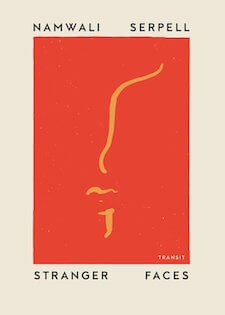What are you reading in October?

Image: Transit Books
In our monthly book club, we discuss whatever we happen to be reading and ask everyone in the comments to do the same. What Are You Reading This Month?

In our monthly book club, we discuss whatever we happen to be reading and ask everyone in the comments to do the same. What Are You Reading This Month?
It’s tricky to talk about Susanna Clarke’s new novel, Piranesi (September 15, Bloomsbury), without talking about what it’s not—i.e., a second Jonathan Strange & Mr. Norrell, the sweeping, epic, deeply humane 2004 doorstopper that made Clarke an instant new voice in the world of fantasy literature. (A voice she’s been extremely selective about using publishing only a single volume of stories in the decade and a half that’s passed since then.) Piranesi doesn’t sweep, except in the mind of its title character, an eternal optimist whose entire world seems to exist only within the vast, platonic halls of the strange tide-washed realm he calls home. Part Gormenghast, part House Of Leaves (but with a far more pleasant minotaur roaming its halls), Piranesi’s world is one occupied by only one other living person—and 13 dead ones. And rather than an 800-page mirror image of all of 19th-century England, Piranesi operates as a tight, brisk, existential mystery—albeit one just as interested in delving into the satisfying mysteries of loneliness as the question of who did what to whom. When finally unraveled, that plot ultimately proves to be far less interesting than the presentation, and the protagonist. (The book occasionally feels like a short story unnaturally extended, or a novel cut short, somehow all at once.) But Piranesi himself remains an endlessly engaging travel guide, a spotless mind whose strange knowledge and odd blind spots provide just as interesting a labyrinth as the one he spends his days wandering through. [William Hughes]
A coincidence, to be sure, but it would seem prognostic that a publisher would choose 2020 as the inaugural year for its series of undelivered lectures. Independent press Transit Books announced in February it would begin publishing a series of books of “discursive prose of exceptional literary and cultural value that’s more lasting than a magazine piece but less substantial than a 300-page hardback.” The first book, Lecture by Mary Cappello (September 8), makes a case for reimagining “knowledge’s dramatic form,” where nonfiction meets performance. Cappello hopes to loosen lectures from the stuffiness they may conjure, the way “lecture” may make one think of being lectured to. (If you especially appreciate Anne Carson’s live performances or Madness, Rack, And Honey, Mary Ruefle’s exceptional collected lectures on poetry, you’ll be into the vibe here.) In this way, Lecture and Stranger Faces, the second book in the series, are more gambits, propositions, and what ifs, than fixed essayistic arguments. They wander and wonder and suppose more than they state outright. In Stranger Faces (October 20), Namwali Serpell, author of 2019’s Old Drift, stitches together her thoughts on human faces that do not fit the mold of the “Ideal Face.” Serpell roams from the Elephant Man to the narrative of a white-passing Black slave to Werner Herzog’s Grizzly Man, homing in on the way that “stranger faces” both “attract and repel recognition,” drawing us in while slipping from our understanding. If Serpell sometimes becomes what she calls a “Too Close Reader”—fixating, for example, on a pair of mops in Alfred Hitchcock’s Psycho—she just as often arrives at surprising insights that see the familiar with new eyes. [Laura Adamczyk]














![HBO teases new Euphoria, Larry David, and much more in 2026 sizzle reel [Updated]](https://img.pastemagazine.com/wp-content/avuploads/2025/12/12100344/MixCollage-12-Dec-2025-09-56-AM-9137.jpg)
























